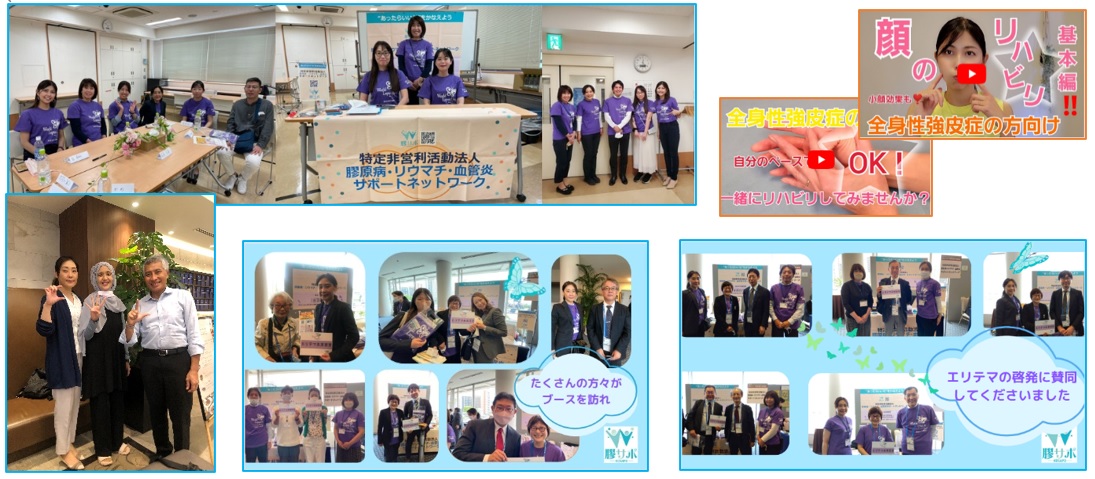Session Information
Date: Sunday, November 12, 2023
Title: Patient Perspectives
Session Type: Patient Perspectives
Session Time: 4:00PM-5:00PM
Background/Purpose: In Japan, firm boundaries exist between people from different walks of life surrounding diseases.
【Patients】
Some patients are unable to assert themselves before doctors who are knowledgeable and socially authoritative, and they are treated as they are told. It appears as if it is taboo to express to a medical professional one’s desire for self-fulfillment by putting off treatment. They feel sorry for their family members, lower their self-esteem, and are unable to say what they want to prioritize in their lives.
【Caregivers of children with illnesses】
In Japan, where interaction with neighbors is decreasing, many families are isolated in child-rearing. This is even more difficult when the child has an incurable disease. Only the caregiver is responsible for the child’s protection. The caregiver’s personal feelings, history, and life are rarely shared with the patients themselves or with health professionals.
【Health care professionals】
It is difficult to fully interact with patients in the small amount of time available for consultation. Doctors experience many conflicts during treatment and feel helpless if their patients’ conditions worsen. They may have to deal with complaints from patients because they are frustrated by their lack of success in treatment.
【Researcher】
There is a delay in the practice of patients actively participating in research. Patients have a victimized sense of being “experimented on” when asked to cooperate in drug development. Researchers and pharmaceutical companies are seen as the bad guys. Communication is not open and transparent.
The strong boundaries created by these positions have caused divisions within our society.
Intervention: It was against this cultural background that we launched the non-profit organization named Rheumatic Disease and Vasculitis Support Network in Japan. We had to resolve a number of conflicts in order to create a framework that was different from the previous Japanese patient associations.We were encouraged by many people’s comments when we presented our work at the ACR in 2021.
Maintenance: Patients, Caregivers, Health care professionals, and researchers know each other, accept each other, and work hand in hand together on various projects.
In April 2022, we exhibited a booth at the Japan College of Rheumatology. There, many doctors and researchers who support the organization joined the group. Occupational therapists and psychologists joined the group when making a video on rehabilitation.While conducting awareness-raising activities, we were contacted from overseas and exchanged views with an Indonesian patient group. I feel empowered, hopeful, and joyful by the expansion of encounters.
Quality of Life: Although patient association activities are not active in Japan, we believe that many people are encouraged by these activities.In fact, in the course of our activities to date, we have received hopeful responses from many patients and caregivers. We are working to overcome the divisions created by the strong boundaries of position. We hope that this organization will be a beacon of hope in the area of rheumatic diseases and vasculitis.
To cite this abstract in AMA style:
Okochi N, Oishi E, Kojima Y, Takashi N, Ishiguro M, Ito-Ihara T, ARIMURA Y. Toward a Frontier Beyond the Barriers of Position and Prejudice [abstract]. Arthritis Rheumatol. 2023; 75 (suppl 9). https://acrabstracts.org/abstract/toward-a-frontier-beyond-the-barriers-of-position-and-prejudice/. Accessed .« Back to ACR Convergence 2023
ACR Meeting Abstracts - https://acrabstracts.org/abstract/toward-a-frontier-beyond-the-barriers-of-position-and-prejudice/

